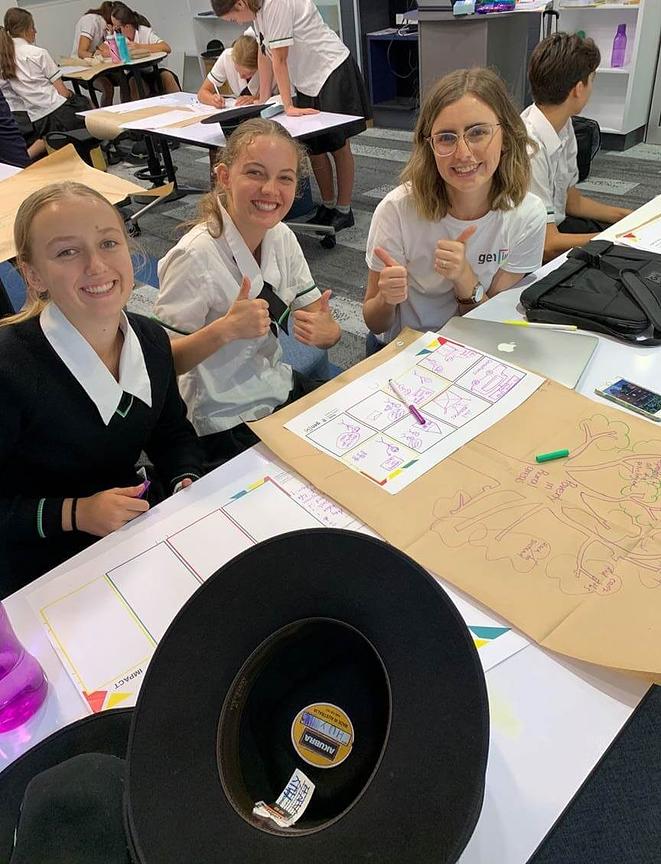Context
As with many communities globally, the context of Trinity Lutheran College is that lots of our parents are small business owners who often look at finance in innovative ways. For example, many will see less value in saving and will see debt positively as a tool to start and grow their business.
How?
Money Matters is a program structured in a way to be integrated into lessons that can be implemented by other schools easily following the ideas below. We started by contacting local universities for free resources they use to teach entrepreneurship and using real world case studies provided by local businesses. We also used video interviews from successful local businesses. Using start up models of design thinking, such as ideation incubators, the goal is to give students the skills to design a social enterprise to thrive financially. Key stages of the project are shared with parents in a private Facebook group which has led to lots of positive feedback.
Beyond Budgeting
Students develop the skills and mindset of social entrepreneurs by studying their financial tips online, who use their high levels of 21st Century Skills and financial literacy to also signicantly change the world for good. Therefore, as part of the program students explore what it means to be a BCorp (https://bcorporation.net/) and design a business using the values of social entrepreneurship. While exploring mindset, students also learn about PERMA+, a positive psychology model as many poor decisions are made financially due to a person’s emotional state.
Project Based Learning
The program is inclusive with equal boys and girls joining it and it’s built around a pedagogy of ‘Project Based Learning’, which allows students to engage at the level they are currently at, while being encouraged to ‘celebrate stuckness’ to stretch them further.
Purposeful Pitching
At the end of the projects, students put together a pitch for funding based on the popular TV program ‘Shark Tank’ using finance questions millionaire investors asked on the TV show. Most tools used by small businesses, such as https://trello.com/ for project management have free versions students can use and teach them a key financial lesson that sometimes, ‘money saved is money made’.
Why?
With the uncertainty of the future of work it could be argued that divergent thinking and understanding the skills of starting and scaling your own business is the ultimate in financial literacy.



